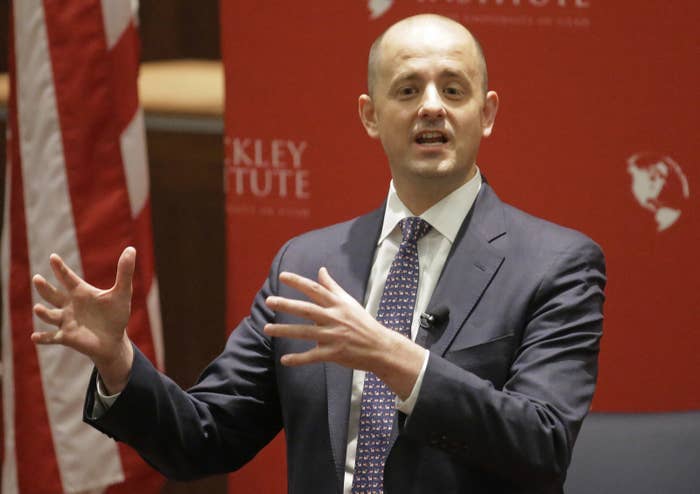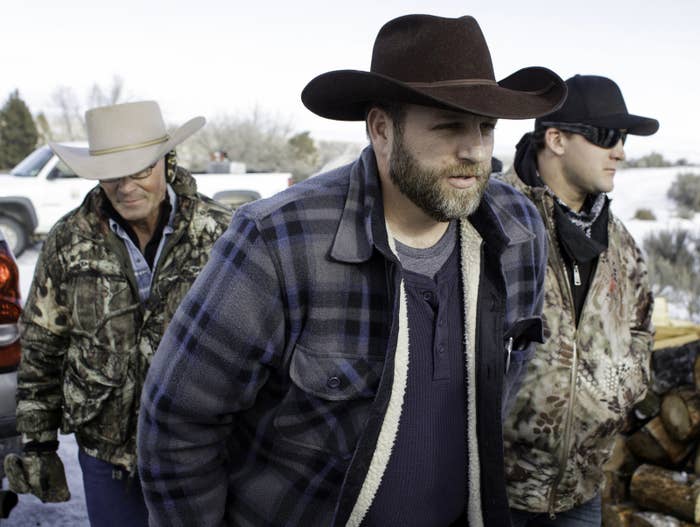
PROVO, Utah — When independent presidential candidate Evan McMullin launched his long-shot campaign earlier this year, he immediately became known as the #NeverTrump choice, the Mormon candidate, and the guy trying to start a new conservative party.
But there's another issue that has made up an important part of his campaign as well: He wants to transfer the federal government's control of vast stretches of land in the West back to the states.
"It's unreasonable for 50% of the West to be controlled by the federal government," McMullin told BuzzFeed News Monday night after a rally in Provo, Utah.
McMullin believes federal land in the West — which includes expansive stretches of Utah, Nevada, Arizona, and other states — would be better managed by state governments. It's a concept that has been floating around for decades, occasionally flaring up into protests and conflicts known as the Sagebrush Rebellion.
Monday night, McMullin described the extent of federal lands in the West as "just unacceptable" and added that he "would be in favor of transferring that land back."
"I was born here but raised in Washington state where we have a serious forest fire problem and it is in part because the federal government is such a terrible manager of those lands," McMullin said. "I just believe that locals can do a better job. They're closer to the land they're closer to the needs of the population of the land. They're right there to take care of it.
McMullin's position puts him in curious company; that's the same position held by the Bundy family of Oregon and Nevada standoff fame, a county commissioner who served jail time for a protest in Utah's San Juan County, and dozens of other western protesters over the years.

McMullin was quick to condemn the tactics used by the Bundys and the violence that resulted, though he said that problems that arose during those episodes "can largely be solved by state control of these lands."
McMullin's views on federal lands hew closely to those of other conservatives in the West — particularly in Utah, which has became the de facto epicenter of the land transfer movement and the broader Sagebrush Rebellion. Rob Bishop and Jason Chaffetz, both Republican congressmen from the state, have been vocal critics of the way Washington manages lands and have proposed various measures that would curtain federal authority. Earlier this year, Utah Gov. Gary Herbert's campaign swag also included sheriff's badges that read "fighting the feds."
But McMullin's candidacy shows that the cause célèbre of the rural West is becoming a brighter star in a broader constellation of American conservative thought; while McMullin may not win the presidency, he has by some measures come closer than any other independent or third party candidate in recent memory.
And his message is resonating, especially in Utah where many of his fellow Mormons have embraced him.
"He's enabling us as Americans to take part in the political process," said Carolyn Taylor, who flew in from Allen, Texas, to volunteer for McMullin.
"He's the only candidate who is principled," Larry Clark, of Mapleton, Utah, said. It was sentiment that was echoed by more than a dozen people who spoke with BuzzFeed News Monday.
For his part, McMullin is already working to build a post-election movement that rejects what he describes as the bigotry and misogyny of Republican presidential nominee Donald Trump. How that movement evolves remains to be seen, but the independent candidate has repeatedly talked about it as an alternative to the established Republican Party, and as something that will grow over time. "We're building a new conservative movement," McMullin is fond of saying at his rallies.
And if he's right, ideas associated with the Sagebrush Rebellion — land transfers, less federal control, and local management — are likely to stick around.
"State power," McMullin said, "tends to be more accountable to the people."
